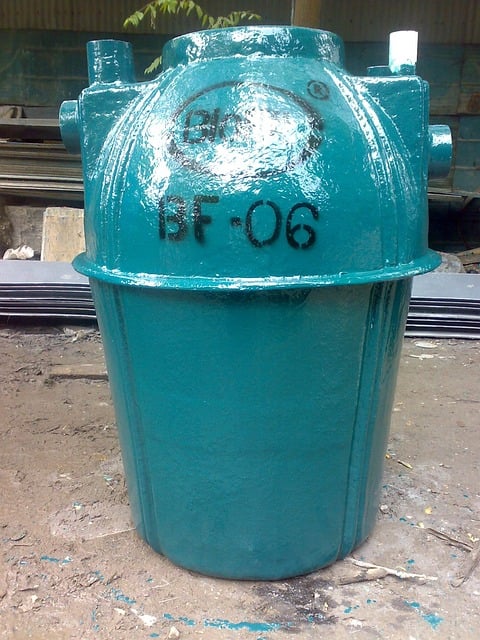Maintaining a septic system involves balancing bacteria in the tank and natural filtration in the soil. Key practices include regular inspections, timely pumping, avoiding non-biodegradable disposals, and using enzyme cleaners for organic matter breakdown. Avoid harsh chemicals that disrupt bacterial balance. Homeowners should focus on preventative measures like reduced water usage, avoiding non-biodegradables, and scheduling professional inspections to ensure the system's longevity and reduce environmental impact.
Maintaining a healthy septic system is crucial for any home or business owner. This comprehensive guide explores the best products and practices for optimal septic system maintenance, separating fact from fiction. From understanding the key components of your septic system to discovering effective solutions, we’ll equip you with the knowledge to keep your system running smoothly. Learn what truly works—and what doesn’t—to ensure a robust and efficient septic system.
- Understanding Your Septic System: Key Components & How They Work
- Effective Products for Maintaining a Healthy Septic System
- Common Misconceptions About Septic System Maintenance: What Doesn't Work
Understanding Your Septic System: Key Components & How They Work

Understanding your septic system is crucial for effective maintenance, ensuring its longevity, and preventing costly repairs. At the heart of this self-contained waste treatment facility are several key components working in harmony. The septic tank acts as a natural or artificial pond where bacteria break down organic matter from household waste into simpler compounds, such as nitrogen and phosphorus. These compounds are then filtered through a system of pipes and drains that distribute effluent (treated waste) throughout the property for use in irrigation or draining.
Another vital part is the drain field, where effluent from the tank seeps into the soil, further enriching it with nutrients before reaching groundwater. The health of your septic system relies on the balance of bacteria within the tank and the efficiency of this natural filtration process. Regular inspections, timely pumping of the tank as needed, and avoiding disposal of non-biodegradable materials are essential practices for maintaining optimal performance in your septic system.
Effective Products for Maintaining a Healthy Septic System

Maintaining a healthy septic system is crucial for keeping your home’s plumbing in top condition and preventing costly repairs. Several effective products can aid in this process, but it’s important to choose those that truly make a difference. Biological octo-enzyme cleaners are a game-changer when it comes to septic system maintenance. These powerful enzymes break down organic matter, fats, and greases that often clog pipes and strain the system. By regularly using such cleaners, you can prevent buildup and ensure smooth flow.
Additionally, using bacteria-based products specifically designed for septic systems is highly beneficial. Good bacteria help in breaking down waste materials more efficiently, reducing the load on the septic tank. This not only extends the life of your septic system but also reduces the environmental impact. Remember, when it comes to what doesn’t work, avoid harsh chemicals and products that claim to “miraculously” clean septic tanks. These can often disrupt the natural balance of bacteria in the system and cause more harm than good.
Common Misconceptions About Septic System Maintenance: What Doesn't Work

Many homeowners hold onto various myths and misconceptions about what constitutes proper septic system maintenance. These ideas, though well-intentioned, often do little to support the health and longevity of these essential systems. One common fallacy is that using certain products, like chemical cleaners or powerful enzymes, will miraculously solve all issues. While these items may provide a temporary fix, they rarely address the root causes of septic problems, such as excess waste buildup or improper system use.
Another misconception is that regular flushing of chemicals down the toilet or drains is necessary for maintenance. In reality, this practice can disrupt the delicate balance within the septic tank, harming beneficial bacteria responsible for efficient decomposition. Instead of relying on chemical quick fixes, homeowners should focus on preventative measures like reducing water usage, avoiding disposal of non-biodegradable materials, and scheduling professional inspections and pumpouts at regular intervals.
In conclusion, maintaining a healthy septic system involves understanding its key components and employing effective products. By avoiding common misconceptions, you can ensure optimal performance and longevity of your septic system. Prioritize regular pumping, avoid excessive water usage, and use approved septic-safe products to keep your system running smoothly without introducing harmful chemicals. Effective septic system maintenance is not only beneficial for your property but also contributes to the overall health of our environment.
